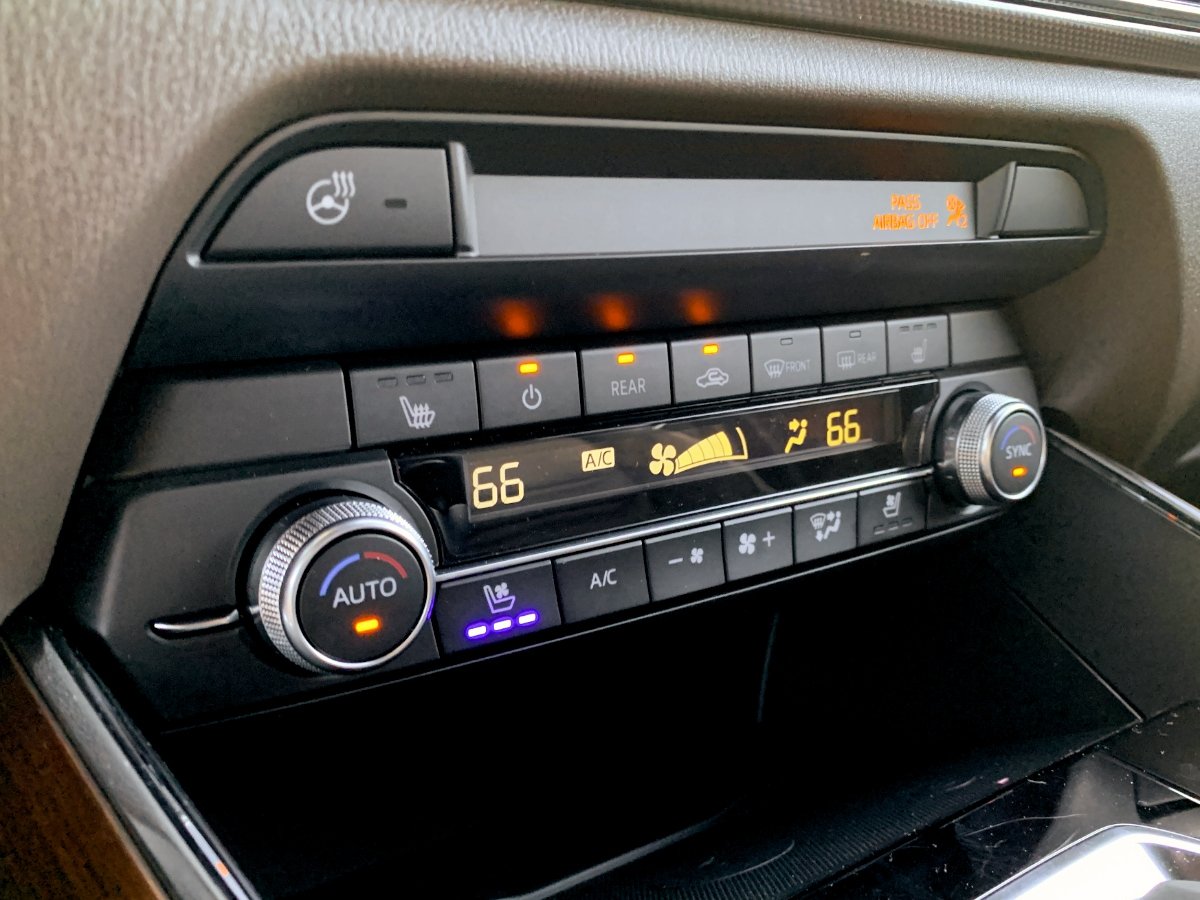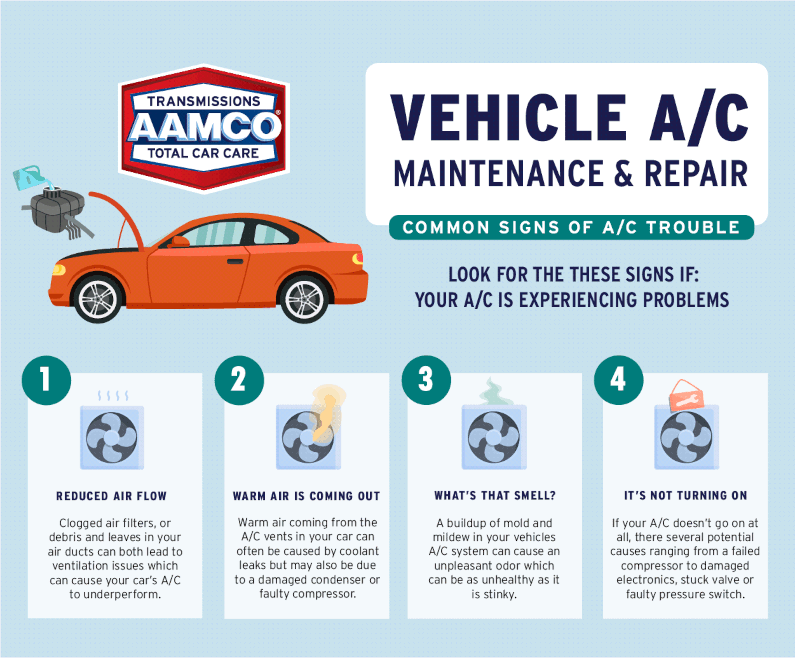Your car’s air compressor may be bad if it makes unusual noises or fails to produce cold air. A defective compressor often leads to ineffective air conditioning.
Understanding the health of your car’s air compressor is crucial, especially as temperatures rise and the need for a functioning air conditioner becomes more pressing. A car’s air compressor is the heart of the AC system, pumping refrigerant through the unit to keep the cabin cool.
Signs of a failing air compressor include strange noises such as grinding or squealing, warm air blowing from vents, and a compressor clutch that doesn’t engage. Ensuring your comfort on the road means staying vigilant for these warning signs. Regular maintenance checks can prevent unexpected breakdowns, preserving the longevity and efficiency of your vehicle’s air conditioning system.

Credit: www.autotechiq.com
Signs Of Ac Compressor Failure
Is your car’s air conditioning not as cold as it used to be? It might be time to check your AC compressor. This crucial component is the heart of your car’s air conditioning system. When it goes bad, you’ll notice some clear signs.
A failing AC compressor can turn a cool drive into a sweatbox. But how can you tell? Understanding the symptoms can save you from a meltdown.
Unusual Noises When Activating Ac
When your AC compressor starts to fail, it often screams for help. Unusual noises are a common cry. Listen for squeals, grinds, or clatters when you turn on the AC. These sounds suggest internal parts may be wearing out or that the compressor clutch is failing.
Inconsistent Cooling Performance
A car’s AC compressor should offer steady cooling. If your car’s cabin temperature feels like a rollercoaster, take note. Inconsistent cooling is a telltale sign. Blowing warm air, then going cold, then warm again shows the compressor may be struggling.
| Quick Checklist for AC Compressor Failure | |
|---|---|
| Loud Noises | May indicate damaged internal components |
| Inconsistent Cooling | Could mean the compressor is having trouble |
| Warm Air | Signals a possible compressor or refrigerant issue |
Review your car’s performance against these signs. Early detection can prevent a full system failure. Regular maintenance keeps you cool all summer long. If these symptoms show up, consult a professional to save your car’s AC!
The Role Of The Ac Compressor
Imagine a hot summer day, your car’s air conditioning system promises relief from the heat. The heart of this system is the AC compressor, vital for cooling your vehicle. It circulates refrigerant necessary for heat exchange. Without it, the system fails to function.
Essential Functions
The AC compressor has key roles:
- Pumping refrigerant throughout the system.
- Turning low-pressure gas into high-pressure gas.
- Transferring heat from the interior to the exterior.
If these functions cease, the compressor may be bad.
Impact On Vehicle Comfort
Comfort inside your car greatly depends on the AC compressor.
- It cools the cabin for a pleasant drive.
- Controls humidity, keeping windows clear.
- Ensures a fresh feeling during long drives.
Struggling with warm air or foggy windows? The compressor might be at fault.
Causes Of Compressor Damage
Understanding the causes behind compressor damage is vital to maintain your car’s air conditioning system. The compressor, often described as the heart of the system, can suffer from various issues, leading to poor performance or complete failure. Let’s delve into some common culprits of compressor damage.
Refrigerant Leaks
A refrigerant leak poses a significant threat to your compressor’s health. This leak can cause the refrigerant level to fall, leading to extra strain on the compressor. Over time, this strain can result in overheating and eventual failure. Signs of a refrigerant leak include:
- Hissing noises under the hood
- Oil residue near air conditioning components
- Warm air blowing from the vents
Clutch Issues
The compressor clutch engages and disengages the compressor pulley. Clutch problems can prevent the compressor from maintaining the right pressure levels. Clutch issues manifest as:
- Inability to engage the compressor
- Noises when the A/C is turned on
- Visible wear or damage
Regular inspections of your vehicle’s A/C system can catch these issues before they lead to compressor replacement, saving you time and money.

Credit: www.jdpower.com
Finding The Fault
The performance of your car depends on a well-functioning air compressor. A bad compressor can lead to discomfort, especially during hot days. Here’s how to spot the issues.
Visual Inspections
Begin with a thorough visual check of the air compressor system. Look for signs of wear or damage.
- Leakage – Check for any signs of refrigerant leaks.
- Damage – Inspect belts and wiring for any visible damage.
- Accumulation – Look for an excess buildup of grime or oil around the compressor.
Performance Tests
Checking the air compressor’s performance can reveal hidden faults.
- Listen for unusual noises when the compressor is running.
- Feel the air temperature coming from the vents; it should be cold.
- Note any inconsistency in cooling during operation.
Carry out these tests and look for any red flags. If the air feels warm or you hear odd sounds, it might be time for a professional assessment.
Diy Diagnosis Tips
When your car’s air conditioning starts to falter, it’s a race against the sun. A bad air compressor can leave you melting on the drive. Quick and easy DIY diagnosis can save your day. Let’s dive into simple checks to pinpoint the problem.
Listening For Irregular Sounds
Troublesome noises often signal compressor issues. Start your engine and turn on the AC. Do you hear strange sounds? A healthy system runs quietly. Listen for clicks, rattles, or whining. These sounds point to a compressor in distress. Record any odd noises with your phone. This helps mechanics diagnose faster.
Checking Air Temperature
The feel of the air can reveal AC health. With the AC on, hold your hand up to the vent. Is the air warm? It should be cold. Monitor the air temperature for a few minutes. Does it change? No? The compressor might be bad. Note the air’s consistency. Choppy airflow can also indicate a compressor problem.
Summary Table
| Symptom | Possible Issue |
|---|---|
| Odd Noises | Compressor Wear or Damage |
| Warm Air | Failing Compressor |
| Inconsistent Airflow | Compressor Malfunction |
When To Seek Professional Help
Discovering that your car’s air compressor is failing can be frustrating. Knowing when to seek professional help is crucial. Attempting to diagnose and fix air compressor issues on your own can be difficult. Specific signs suggest it’s time to take your car to a professional mechanic. Let’s discuss these signs, focusing on complex symptoms and the risk of further damage.
Complex Symptoms
Your car’s air compressor health reflects through various signs. Some of these can be complex and misleading. For accurate diagnosis, here’s why a mechanic’s expertise matters:
- Electrical Issues: When electrical connections fail, determining the root cause needs specialized tools.
- Mixture of Symptoms: Air compressors might show a blend of noise, leakage, and performance issues. Professionals can pinpoint the exact problem.
- Intermittent Cooling: Inconsistent cooling can be baffling. Experts assess system pressure and function to find the cause.
Risk Of Further Damage
Ignoring air compressor issues can lead to more significant car problems. Here’s why prompt professional inspection is crucial:
- Safety: A malfunctioning compressor can lead to overheating and potential engine damage.
- Cost-Efficiency: Early detection can prevent expensive repairs. Mechanics can save you money in the long run.
- Comprehensive Care: Professionals offer a full check-up. They ensure other systems aren’t at risk due to compressor failure.
Repair Or Replace?
When car air compressors fail, owners face a crucial question: Repair or replace? Identifying the right course of action can save time, money, and frustration. Knowing whether to opt for a repair or a complete replacement hinges on several factors, including cost and long-term reliability.
Cost Considerations
The decision between repair and replacement largely centers on cost. To make an informed decision, compare the repair cost against the price of a new compressor. Consider potential future repairs that may arise if you choose the repair option. Use this table to evaluate costs:
| Option | Immediate Cost | Long-term Cost |
|---|---|---|
| Repair | Lower | Could increase with recurring issues |
| Replace | Higher | Potentially lower, more predictable |
Seek professional quotes for both options. Base your choice on a balance between upfront and expected future costs.
Longevity And Reliability
Long-term performance is another critical factor. Assess the current condition of your air compressor. Is it relatively new or has it seen better days? A new compressor can offer:
- Enhanced Performance: More efficient cooling and energy consumption.
- Warranty Security: Offers peace of mind with coverage for defects.
- Increased Lifespan: Less likely to fail prematurely compared to an old, repaired unit.
Reliability plays a vital role. If the existing compressor has a history of issues, it’s likely to continue that trend. In such cases, replacement may be the smarter investment for uninterrupted operation and assurance.

Credit: www.automovill.com
Preventative Maintenance
An ounce of prevention is worth a pound of cure, especially when it comes to your car’s air compressor. Regular maintenance can save you from the discomfort of a non-functioning air conditioning system and the high costs of repair. Let’s delve into how regular check-ups and early intervention can keep your air compressor in top shape.
Regular Check-UpsRegular Check-ups
Keeping tabs on your car’s air compressor extends its lifespan. Schedule routine inspections as part of your vehicle’s service. During check-ups, professionals look for signs of wear and refrigerant levels. These are critical factors for a compressor’s health.
Presenting the maintenance check-up list- Inspect belts and hoses for damage.
- Check the refrigerant level.
- Test the compressor’s performance.
- Listen for abnormal noises.
- Look for signs of leaks or damage.
Early Intervention Benefits
Catching issues early with your air compressor can prevent costly repairs. If problem signs are ignored, they will escalate, leading to a complete system failure. This could mean more time without AC and higher repair bills.
Highlight benefits in a table format| Early Detection | Benefits |
|---|---|
| Mild Wear and Tear | Basic repairs or adjustments. |
| Low Refrigerant Levels | Simple refill avoids compressor strain. |
| Noises and Leaks | Fix early and evade major damage. |
Don’t overlook your car’s AC health. Book regular check-ups and act swiftly on any irregularities. Your comfort and wallet will thank you!
Understanding Replacement Costs
When an air compressor fails in a vehicle, repairs can be costly. Knowing the breakdown of expenses helps car owners manage their budgets. Key factors influence the total replacement cost. These include the compressor price, labor, and additional parts. Below, explore the detailed costs and budget-friendly tips for air compressor replacement.
Breakdown of ExpensesBreakdown Of Expenses
The cost of replacing a bad air compressor goes beyond the part alone. Consider these factors:
| Expense | Cost Range |
|---|---|
| Compressor Part | $200 – $600 |
| Labor | $100 – $300 |
| Additional Parts | $50 – $200 |
| Total Cost | $350 – $1100 |
Labor costs vary based on location and garage rates. Additional parts may include hoses or clamps.
Tips for BudgetingTips For Budgeting
- Get Multiple Quotes: Shop around for the best prices.
- Diagnose Early: Catch issues before they escalate.
- Consider Aftermarket Parts: They may be cheaper than OEM parts.
- Maintain Your AC System: Regular maintenance can prevent costly repairs.
- Set Aside an Emergency Fund: This can help with unexpected car expenses.
Implement these tips and prepare for potential compressor replacements. Planning ahead can alleviate financial stress and keep your car’s AC running smoothly.
Frequently Asked Questions On How Do You Know If Your Air Compressor Is Bad In Your Car
How Can I Tell If My Car Ac Compressor Is Bad?
Signs of a bad AC compressor include strange noises, warm air from vents, and visible refrigerant leaks.
What Happens When A Compressor Goes Bad In A Car?
A bad car compressor can result in AC failure, causing a lack of cold air and potential overheating of the engine due to increased load.
How Much Does It Cost To Replace Ac Compressor In Car?
Replacing an AC compressor in a car typically costs between $600 and $1200.
Which Is A Symptom Of A Bad Compressor?
A symptom of a bad compressor includes unusual noises such as rattling or squealing when the AC is running.
Conclusion
Recognizing the signs of a faulty air compressor is crucial for your car’s AC performance. Simple awareness of unusual noises, warm air, and other indicators can help avoid larger issues. Regular maintenance and early detection are key to keeping your cooling system running smoothly.
Should you suspect compressor problems, prompt inspection by a professional is advised. Keep your car’s comfort in check; address air compressor concerns early for a smooth drive.

